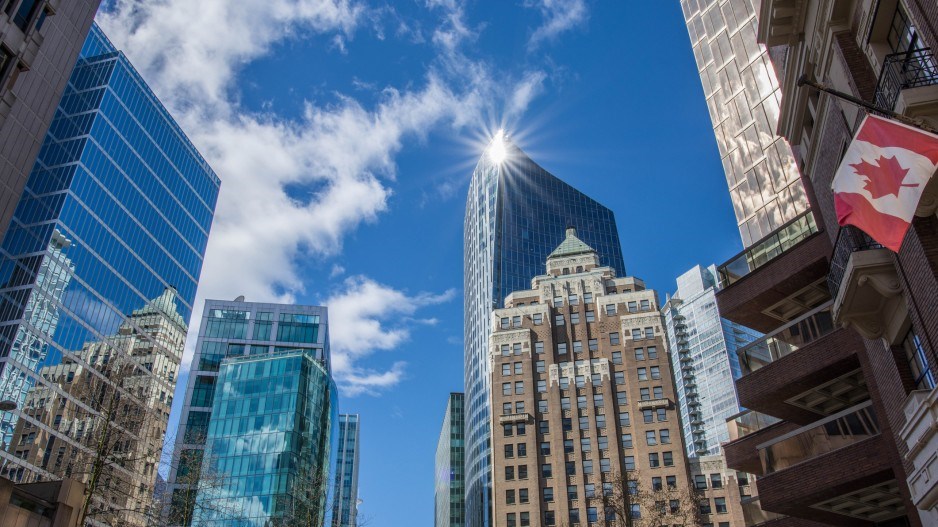The office market is in a period of adjustment as companies understand with more certainty the needs of their employees.
This is leading to changes in how businesses and their teams utilize physical space, said Glenn Gardner, principal at Avison Young. The result is a healthy office market that is shifting alongside employer preferences.
“You're gonna see a lot of movement in the marketplace, both in subleases and headleases as tenants begin to reimagine what the future of their office is going to look like. Because now, they have the certainty that they didn't have before or during COVID-19,” Gardner said.
Vancouver’s overall office vacancy rate is 8.6 per cent, up from the 7.8 per cent observed in mid-2022, the lowest of any major Canadian city. The downtown core’s vacancy rate ticked up from 8 per cent in mid-year 2022 to 9.5 per cent, according to a 2022 year-end report from Avison Young.
The increase in downtown vacancy is due to an influx of new inventory. Vancouver Centre II, in particular, added 377,000 square feet without full pre-lease commitments. In addition, new AAA developments facilitated a movement of tenants from older buildings to newer spaces.
Bosa Waterfront Centre and The Stack will be completed in 2023, adding more space. Downtown vacancy is expected to increase this year as a result, said Gardner, adding that the new space will contribute to the health of the market.
“The general sentiment in downtown Vancouver, from an office perspective, is it's a very exciting time,” he said. “There are brand new buildings that are being delivered and as we continue to grow on a global scale and there are opportunities available in our marketplace today to house some new entrants that may want to come into our market.”
The area to watch for office real estate in Vancouver this coming year will be the area surrounding False Creek Flats and Mount Pleasant, coined the “innovation district.” There has been “significant interest” from developers who are focused on providing technology and life-science centred spaces, said the report.
Zoning in the area has changed with the integration and approval of the new Broadway plan, which allows for bigger developments that weren’t possible in the past, said Gardner.
“Traditionally a lot of these innovative technology users didn't like being downtown. Being in a tall skyscraper might not speak to who they are from a corporate standpoint and Yaletown was always that kind of marketplace. But as they grow and as the vacancy within the Yaletown market has really tightened up, there needed to be another location for them to move into,” he said.
As more residential buildings are approved for the area and the subway stations finish construction, the report predicts that there will be greater capital inflow to the neighbourhoods as investor confidence builds.
This last year also the largest proportion of sublease deals completed in downtown Vancouver in the last four years. The total number of sublease deals equalled 34, accounting for 27.6 per cent of all deals completed. This represents an increase of 112.5 per cent when compared to the 16 sublease deals in 2019, according to the report.
Many of these sublease deals took place in the technology sector, primarily due to employees in the industry having the ability to work from home, said Gardner.
“They don't necessarily need to interact on a daily basis with their teams or their employers. And so that has been probably the toughest industry to get back into the office,” he said.
Despite being well positioned to work from home, Gardner said that many are choosing to come back into the office in the wake of layoffs in the technology industry.
“At the end of the day, employees want to be seen and heard. Because when it comes time for layoffs, they want to be seen in the office as active and involved. And the way to do that is to be present with whoever the employer is,” he said.
Roughly 77 per cent of space over 10,000 square feet has been vacated by technology occupiers, said the report, with major tenants including Microsoft, Shaw and Avigilon.




